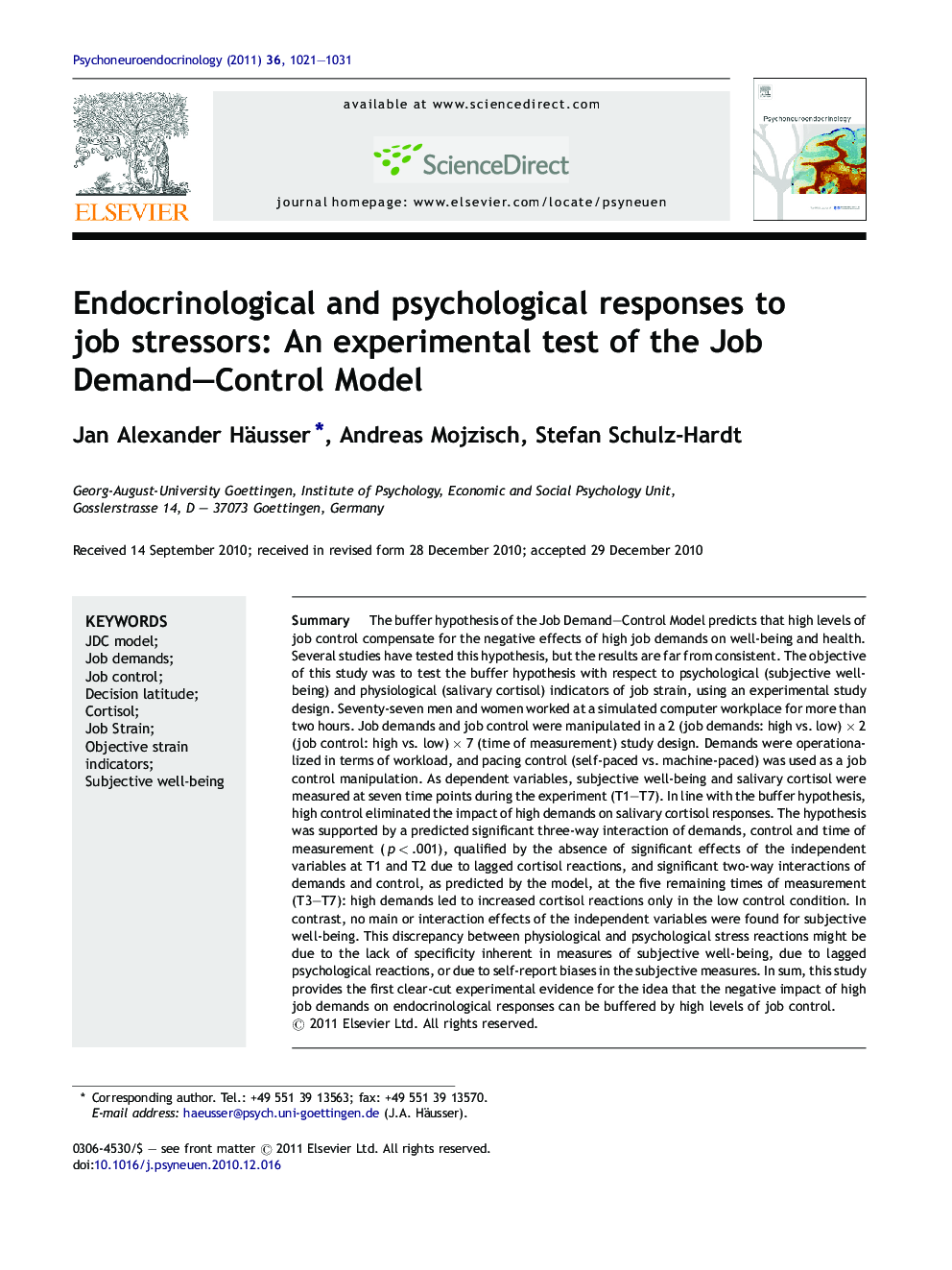| کد مقاله | کد نشریه | سال انتشار | مقاله انگلیسی | نسخه تمام متن |
|---|---|---|---|---|
| 10306424 | 547170 | 2011 | 11 صفحه PDF | دانلود رایگان |
عنوان انگلیسی مقاله ISI
Endocrinological and psychological responses to job stressors: An experimental test of the Job Demand-Control Model
دانلود مقاله + سفارش ترجمه
دانلود مقاله ISI انگلیسی
رایگان برای ایرانیان
کلمات کلیدی
موضوعات مرتبط
علوم زیستی و بیوفناوری
بیوشیمی، ژنتیک و زیست شناسی مولکولی
علوم غدد
پیش نمایش صفحه اول مقاله

چکیده انگلیسی
The buffer hypothesis of the Job Demand-Control Model predicts that high levels of job control compensate for the negative effects of high job demands on well-being and health. Several studies have tested this hypothesis, but the results are far from consistent. The objective of this study was to test the buffer hypothesis with respect to psychological (subjective well-being) and physiological (salivary cortisol) indicators of job strain, using an experimental study design. Seventy-seven men and women worked at a simulated computer workplace for more than two hours. Job demands and job control were manipulated in a 2 (job demands: high vs. low) Ã 2 (job control: high vs. low) Ã 7 (time of measurement) study design. Demands were operationalized in terms of workload, and pacing control (self-paced vs. machine-paced) was used as a job control manipulation. As dependent variables, subjective well-being and salivary cortisol were measured at seven time points during the experiment (T1-T7). In line with the buffer hypothesis, high control eliminated the impact of high demands on salivary cortisol responses. The hypothesis was supported by a predicted significant three-way interaction of demands, control and time of measurement (p < .001), qualified by the absence of significant effects of the independent variables at T1 and T2 due to lagged cortisol reactions, and significant two-way interactions of demands and control, as predicted by the model, at the five remaining times of measurement (T3-T7): high demands led to increased cortisol reactions only in the low control condition. In contrast, no main or interaction effects of the independent variables were found for subjective well-being. This discrepancy between physiological and psychological stress reactions might be due to the lack of specificity inherent in measures of subjective well-being, due to lagged psychological reactions, or due to self-report biases in the subjective measures. In sum, this study provides the first clear-cut experimental evidence for the idea that the negative impact of high job demands on endocrinological responses can be buffered by high levels of job control.
ناشر
Database: Elsevier - ScienceDirect (ساینس دایرکت)
Journal: Psychoneuroendocrinology - Volume 36, Issue 7, August 2011, Pages 1021-1031
Journal: Psychoneuroendocrinology - Volume 36, Issue 7, August 2011, Pages 1021-1031
نویسندگان
Jan Alexander Häusser, Andreas Mojzisch, Stefan Schulz-Hardt,